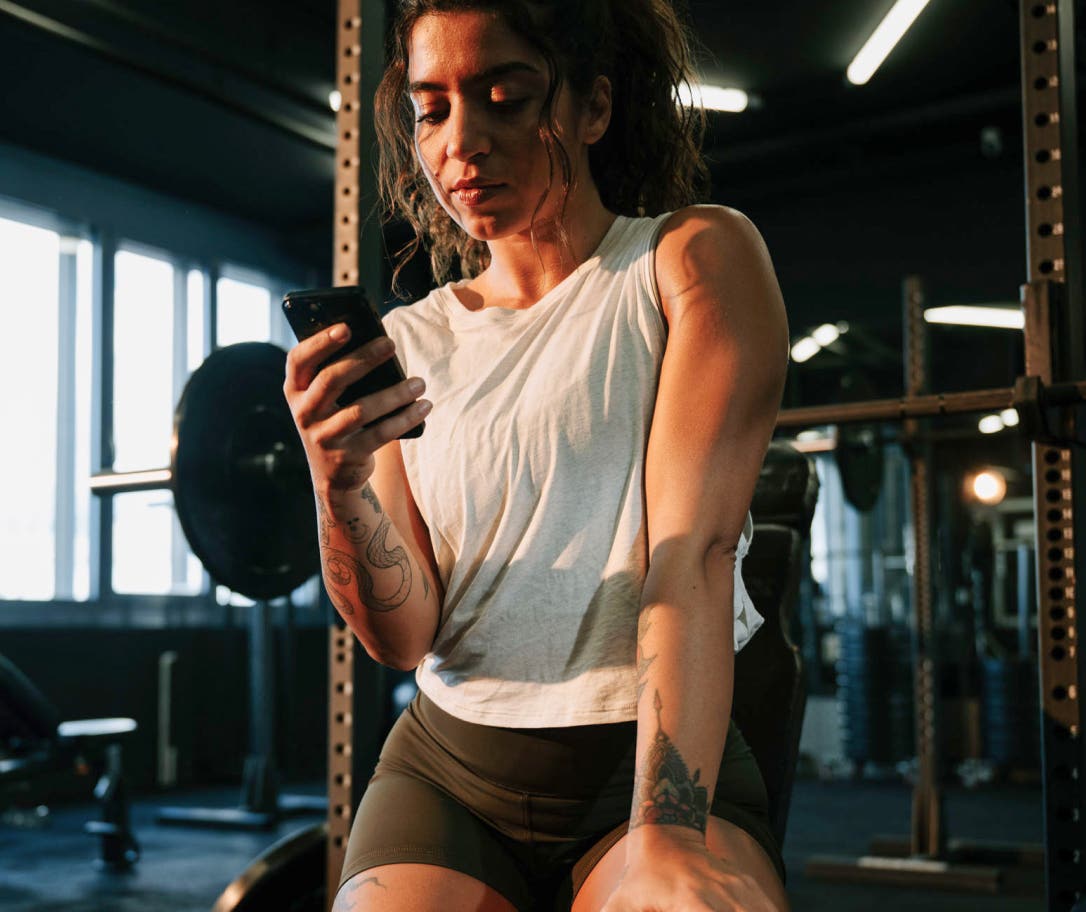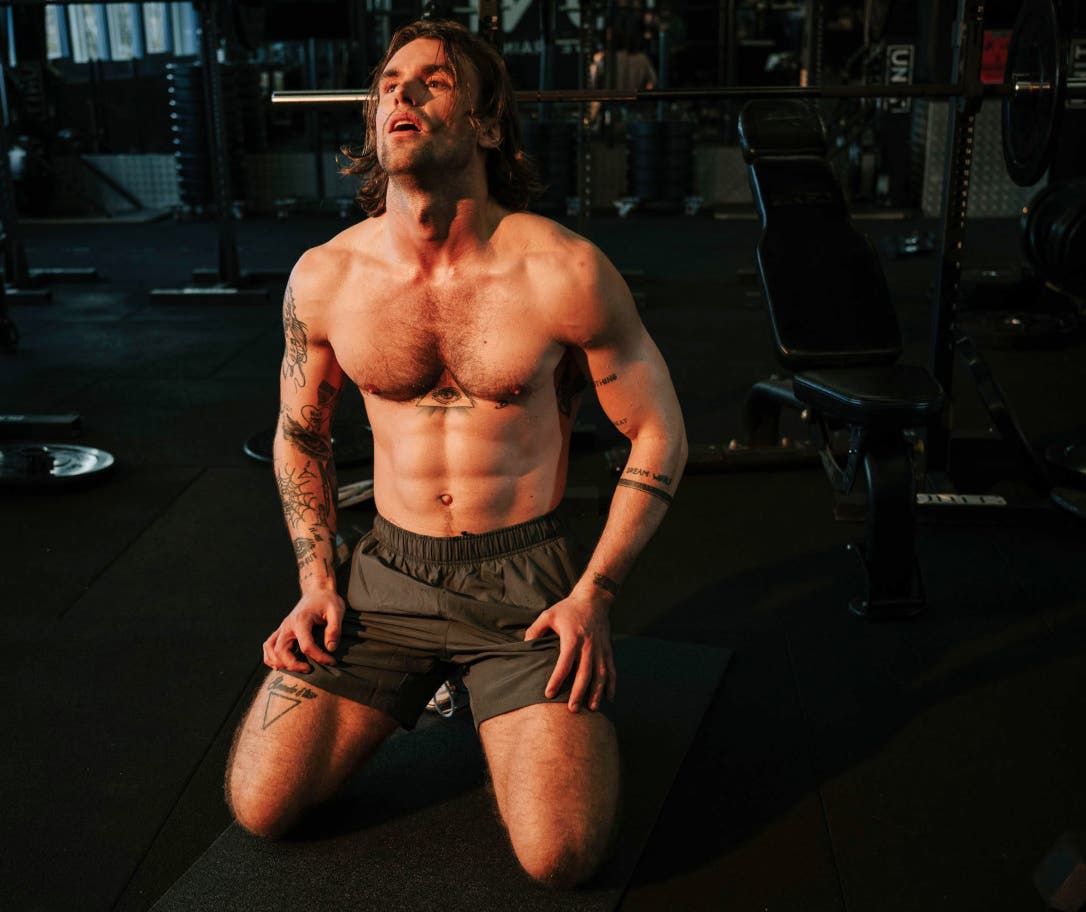In a world where every image seems perfect, we're left wondering: What is real fitness?
And that’s in large part thanks to the massive transformation the fitness industry has undergone in recent years.
What was once confined to professionals and fitness models in glossy magazines now saturates our social media platforms. And to complicate things even further, almost anyone can create fitness content – you don’t have to be certified or educated.
Often, simply looking the part can be a big selling point for the so-called “fitfluencers”. But here’s the raw truth: the vast majority of fitness social media influencers regularly use filters and image editing when they create content.
The constant exposure to seemingly flawless bodies profoundly impacts our psyche and self-image. Like walking in a world filled with fun-house mirrors: what you see is not reality.

The psychological impacts of filters, AI, and Photoshop on our mental health
It affects our self-confidence
Many young adults report feeling less confident after scrolling through fitness content on social media. When you constantly compare yourself to unattainable ideals, it leads to a vicious cycle of self-doubt and dissatisfaction.
"Fake fitness" can lead to body dysmorphia
There's an alarming rise in Body Dysmorphic Disorders. The way fitness is distorted in media and online can cause vulnerable people to develop a skewed negative body image that’s far from reality.
Unrealistic beauty standards emerge
Several fitness content creators on social media display body proportions that are simply unachievable without digital manipulation. A few fitness influencers have begun to talk openly about the negative side effects of their past image editing practices.
Unfair comparisons
Altered images are everywhere. And with filters, apps, AI, and more, you don't even need to be a professional to do it. But it’s this type of content that creates a new, unfair standard to which people tend to compare themselves.
These comparisons are incredibly misleading. They pit your natural body against an artificially enhanced one – or fake, fueling a negative self-image.
And that’s not all. These effects can also lead to profound mental health struggles such as anxiety, depression, and an overall unhealthy relationship with your body.

How "fake fitness" impacts our workout motivation
Goals feel unattainable
Many gym-goers report feeling their goals are "unrealistic" after following fitness influencers on social media. If you don't achieve the results you see online despite doing regular exercise, it can be frustrating.
The desire for the perfect body becomes dangerous
The urge to achieve unrealistic body ideals can lead to dangerous behaviors. Unfortunately, overtraining and restrictive eating habits are common pitfalls in the quest for the “perfect body ”. And it can seriously jeopardize your health.
Disappointment spiral forms
When you frequently compare yourself to edited fitness images, you’re much more likely to give up on your fitness goals. The constant disappointment of not looking like that filtered role model can lead to a spiral of demotivation.
How to build a healthier relationship with fitness
Despite the challenges, there are ways to cultivate a positive approach to fitness and body image.
Why authenticity is so important
The #NoFilter movement across different types of social media is increasing in popularity – and with good reason. Authentic representations of fitness and health are crucial in conveying a realistic picture of what true fitness means.
How to develop a healthy body image
Here are six tips to help you build a healthier relationship with your body:
- Develop media literacy: View the media you consume critically and learn to recognize distorted images.
- Focus on function and progress: Concentrate on what your body can do and on what you've already achieved, not how it looks.
- Practice positive affirmations: Engage in daily self-affirmation and gratitude for your body. We set more realistic goals when we accept ourselves, and we stay motivated because we are not fighting against ourselves.
- Celebrate diversity: Recognize that fitness and health come in many forms and look different for each person. That includes you!
- Regularly do a social media detox: Take breaks from social media and constantly comparing yourself to others.
- Find your community: A supportive community offers authentic inspiration and motivation that's far more valuable than following influencers with unattainable standards.
These strategies help create a healthy distance from unrealistic ideals and focus on your own well-being to promote a positive body image.
The path to getting real with fitness
"Fake fitness" has profound effects on our mental health and overall well-being. From impaired self-confidence to unrealistic expectations - the consequences are diverse and often harmful.
But there's hope. Focus on the strength you're building, the endurance you're improving, and the overall health benefits you're gaining. And don’t forget the mental health benefits like improved mood, reduced stress, and overall well-being. These benefits are real and tangible, unlike the fleeting satisfaction of achieving a certain "look."
As you navigate the often confusing world of fitness media, stay true to yourself and focus on real, achievable goals. What works for one person may not work for another, and that's perfectly okay.
By embracing your real, individual journey, you'll not only improve your physical fitness but also cultivate a healthier, more positive mindset. And that's a victory worth more than any filtered photo could ever capture.